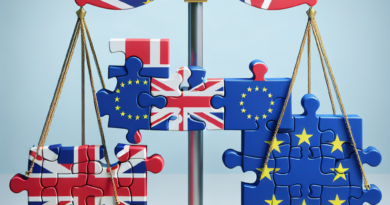What happens if Germany actually leaves the European Union
There is a proposal for Germany to leave Europe.
After "Brexit" nothing should be surprising anymore, but the farewell of the Union's economic engine (even if in crisis) is frightening.
However, the possibility of this happening is very low.
There is talk of hypotheses, even rather imaginative ones, which clash with over a million people who took to the streets.
The link between the proposal and the square animated by anti-right-wing extremism sentiment is quickly explained.
Who is proposing a referendum on Germany's exit from the European Union? Precisely AfD (the German far-right party Alternative für Deutschland).
Against whom did the squares come alive? Always AfD.
Between Saturday and Sunday, 1.5 million people invaded the squares of Hamburg, Hanover, Frankfurt, Kassel, Dortmund, Wuppertal, Karlsruhe, Nuremberg and beyond.
The protests were organized against the plan for the mass expulsion of migrants, asylum seekers and unassimilated German citizens.
In fact, an investigation brought to light the secret meeting that took place in Potsdam and the population rioted.
Alice Weidel, leader of the far-right party, not happy with having received chants, slogans and whistles in the streets, has set herself the objective of "trying to limit the powers of the European Commission" or, in case of failure, "exiting the 'EU”.
A Dexit, as the newspapers have already renamed it, which however is not liked by the citizens and which could pocket less than 10% of the "yes".
If absurdly the "yes" were to win in a referendum to leave the European Union, what could happen in Germany and outside of it? read also 30 years after Maastricht, the European Union is just a marriage of convenience Germany outside the EU: the AfD proposal There is no doubt: the AfD is the far-right party that wants to try to remain in the collective memory with great ( and exaggerated) statements.
In an interview with the British Financial Times, Alice Weidel, leader of the AfD, said that the EU should be "reformed".
If this does not happen, then Germany would have to leave.
A worrying statement in light of the 22% preference (data taken from surveys) just six months after the elections.
It all starts with the renewal of the European Parliament.
Weidel comments: if reform is not possible, if we cannot restore the sovereignty of EU member states, then we should let the people decide, as the UK has done.
Brexit, he says, “was damn right” and is a model for Germany.
Yet even within its own electorate, AfD would find itself in difficulty in seeking convinced "yes" votes for Dexit (Germany's exit from the EU).
According to a survey between June and September 2023, AfD voters would like to remain in the EU (55%).
Weidel attempted to distance himself from the Potsdam rally discussing the mass expulsion of foreigners from Germany, but the investigation sparked controversy and protests.
read also Gas prices, 16% collapse from the beginning of 2024.
But Europe is still at risk Germany out of the EU: what would happen The outcomes of a Dexit would be apocalyptic for many.
The common opinion is that Germany is the economic engine of Europe, but also a bastion of green initiatives and rights.
On the other side there are those who believe that if without Germany all the other countries would become richer.
The arguments in this sense are simple: without German exports, the internal EU economies would sell more and therefore be richer.
Macro-economic reasons mostly, but almost no one tries to imagine a Union without its centre, namely Germany.
One thing is certain: it wouldn't be like Brexit, it would be a crisis capable of throwing the whole of Europe into crisis.
read also Between Brexit and the Parthenon marbles, Rishi Sunak's gaffes continue


